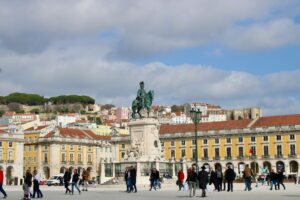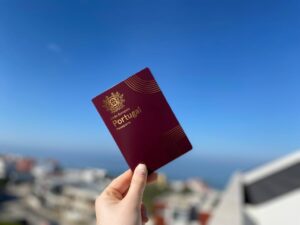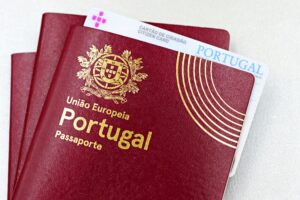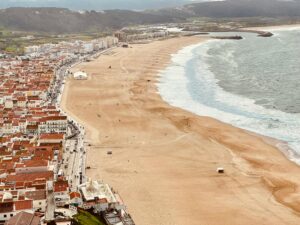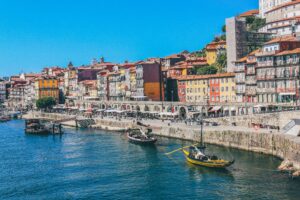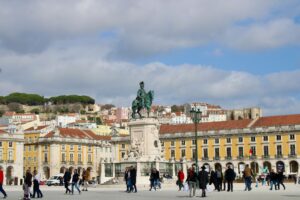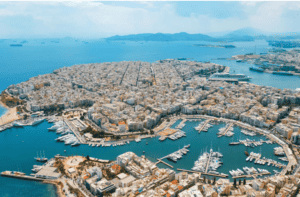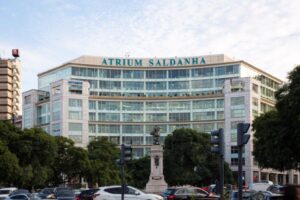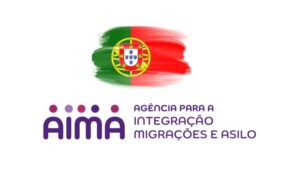Portugal has become a top destination for digital nomads, offering excellent infrastructure, thriving communities, and a perfect work-life balance. The Portugal Remote Work Visa, also known as the Digital Nomad Portugal Visa, is a popular choice for freelancers, remote workers, and tech professionals looking to relocate. Cities like Lisbon, Porto, Madeira, and Lagos are hubs for digital nomad jobs in Portugal, while the country’s welcoming culture and clear digital nomad Portugal requirements make it easy to settle in. From navigating digital nomad taxes in Portugal to finding the right visa, this guide will help you make the most of your remote work journey in Portugal.
Why Choose Remote Work in Portugal?
Portugal offers a unique lifestyle and supportive policies, making it an ideal destination for digital nomads in Portugal. Here are the top reasons why it attracts remote workers from around the world:
- Affordable Cost of Living: Compared to other Western European countries, Portugal’s cost of living is relatively low. Housing, food, and transportation are budget-friendly, allowing digital nomads to enjoy a comfortable lifestyle without overspending.
- Safety: Consistently ranked as one of the safest countries in the world, Portugal provides peace of mind for those relocating.
- Culture and Nature: Portugal is rich in history and culture, with stunning architecture, diverse cuisine, and traditional arts like Fado music. Vibrant festivals and a welcoming atmosphere make it easy for digital nomads in Portugal to integrate into local life.
- Quality of Life: Portugal’s Mediterranean climate, breathtaking coastline, relaxed pace of life, and excellent public services create the perfect environment for achieving a work-life balance.
For anyone exploring remote work in Portugal or considering the digital nomad Portugal visa, the country offers a compelling mix of affordability, safety, and lifestyle benefits.
Portugal’s Proactive Remote Work Policies
In response to the global shift in work trends, the Portuguese government introduced the D8 Digital Nomad Visa (also known as the Portugal Digital Nomad Visa) in 2022. This visa allows applicants from non-EU countries to live and work legally in Portugal, provided they meet minimum income and employment requirements.
This forward-thinking policy highlights Portugal’s openness and flexibility in the post-pandemic era, successfully attracting talented professionals from around the world. Whether you’re planning to apply for the Portugal D8 Visa or join the vibrant digital nomad Portugal community, the country offers a supportive environment to help you start a new chapter of work and life.
What Support Do Digital Nomads Receive in Portugal?
1. Benefits and Protections
Portugal ensures that digital nomads feel secure and supported with a range of benefits:
- Healthcare: Holders of the D8 Digital Nomad Visa can access Portugal’s efficient and affordable public healthcare system (SNS). Additionally, private health insurance is available at reasonable prices for extra coverage.
- Digital Nomad Tax Incentives: Eligible applicants may benefit from Portugal’s Non-Habitual Residency (NHR) program, which offers tax reductions on personal income—a particularly attractive option for freelancers and remote workers.
2. Flexible Housing Options
Portugal provides diverse accommodation choices to suit both short-term and long-term stays:
- Cultural Homestays: For those looking to immerse themselves in Portuguese culture, homestays or traditional guesthouses with local hosts are excellent options.
- Short-Term Rentals: Cities like Lisbon, Porto, and Madeira offer numerous furnished apartments and co-living spaces with high-speed internet, perfect for immediate move-ins.
- Nomad Villages: Portugal’s digital nomad community is thriving, with dedicated spaces like Ponta do Sol in Madeira, which features co-working spaces, events, and networking opportunities.
3. Strong Digital Infrastructure
Portugal’s robust digital infrastructure ensures an efficient environment for remote work:
- High-Speed Internet: Widely available in urban areas, with free Wi-Fi in many public spaces like cafes and libraries.
- Co-Working Spaces: Modern co-working facilities in Lisbon, Porto, and Madeira offer flexible plans and excellent amenities for digital nomads.
- Tech Ecosystem: Portugal’s fast-growing tech startup scene attracts global talent and companies, providing collaboration opportunities and resources, especially for IT professionals and freelancers.
Portugal’s exceptional living standards, excellent infrastructure, and supportive policies make it a top destination for digital nomads worldwide, solidifying its place as the ultimate hub for remote work in Portugal!
Is Portugal’s Work Culture Suitable for Digital Nomads?
Portugal’s work culture is highly welcoming to digital nomads, offering a unique blend of a healthy work-life balance, emphasis on interpersonal relationships, and professional etiquette. Here’s why remote work in Portugal is so appealing:
1. Legal Protections and Work-Life Balance
Portugal prioritizes the well-being of all workers, including digital nomads, by ensuring excellent working conditions and legal protections:
- Standard Work Hours: A typical workweek is 40 hours, with a maximum of 8 hours per day, leaving ample time for rest and personal pursuits.
- Paid Vacation: Employees are entitled to at least 22 days of paid leave annually, giving remote workers the flexibility to explore Portugal’s culture and attractions.
- Right to Disconnect: Since 2021, Portuguese law prohibits employers from contacting staff outside working hours, ensuring clear boundaries between work and personal life.
- Four-Day Workweek Pilot: Portugal has been trialing a government-backed four-day workweek, with initial results showing reduced stress, improved productivity, and better work-life balance.
These policies allow digital nomads to thrive in a healthy work environment while enjoying Portugal’s relaxed lifestyle.
Portugal’s Digital Nomad Visa (D8)
What is the D8 Visa?
Portugal’s Digital Nomad Visa, officially known as the D8 Visa, is designed for non-EU/EEA remote workers and freelancers who wish to live and work in Portugal while maintaining employment with companies outside the country. This visa allows for an initial stay of up to one year, with the possibility of renewal. Holders can also travel freely within the Schengen Area for up to 90 days within a 180-day period. Additionally, the D8 Visa provides access to certain public services in Portugal, including healthcare and public transportation, and enables family reunification under specific conditions.
What Are The Digital Nomad Portugal Requirements?
To qualify for the D8 Visa, applicants must meet the following criteria:
- Criminal Record: Clean criminal record certificate from the country of residence.
- Age: 18 years or older.
- Citizenship: Non-EU/EEA citizen.
- Employment: Engaged in remote work as an employee, freelancer, or entrepreneur with clients or companies outside Portugal.
- Income: Minimum monthly income of €3,480 for the long-term residency visa.
- Accommodation: Proof of accommodation in Portugal, either through a rental agreement or property ownership.
Speak with an Immigration Specialist
What is the Application Process ?
- Gather Required Documents: Collect all necessary documentation, including proof of income, accommodation, and health insurance.
- Submit Application: Apply at the Portuguese consulate or embassy in your home country.
- Attend Visa Appointment: Schedule and attend an appointment to submit biometrics and complete the application process.
- Receive Visa: Upon approval, receive the D8 Visa, which allows entry into Portugal.
- Apply for Residence Permit: Once in Portugal, schedule an appointment with AIMA (formerly SEF) to obtain your residence permit.
Required Documentation For D8 Visa
Applicants need to provide the following documents:
- Valid Passport: With at least six months of validity.
- Proof of Income: Bank statements or contracts demonstrating the required monthly income.
- Accommodation Details: Rental agreement or property deed in Portugal.
- Health Insurance: Coverage is valid in Portugal.
- Criminal Record Certificate: From the country of residence.
- Motivation Letter: Explaining the purpose of the stay in Portugal.
- NIF Number: Portuguese tax identification number.
- Portuguese Bank Account: Proof of a bank account in Portugal.
Processing Times For D8 Visa
- Initial Visa Application: Approximately 60 days for review and approval.
- Residence Permit Appointment: Scheduling can take up to four months after arrival in Portugal.
- Residence Permit Issuance: Typically delivered within 90 days after the appointment.
Cost Breakdown
- Visa Application Fee: €90.65 /$102.24
- Residence Permit Fee: €130 per applicant.
- Health Insurance: Varies; typically starts at €20 per month.
- Accommodation Costs: Dependent on location and type of housing.
- Additional Costs: May include translation of documents, legal assistance, and travel expenses.
Approximate costs – May 2025
Want to apply for a Portugal D Visa by yourself? Explore our D Visa DIY Package for comprehensive guidance and resources.
Best Destinations for Digital Nomads in Portugal – A Comparison of Job Opportunities and Living Costs
Lisbon: The Vibrant Capital
- Job Opportunities: Lisbon is the top choice for digital nomads in Portugal, offering abundant coworking spaces, active social events, and a rapidly growing startup ecosystem. With excellent digital infrastructure and a diverse international community, Lisbon is ideal for remote workers seeking a dynamic and professional environment.
- Living Costs: Lisbon is relatively more expensive than other Portuguese cities. A digital nomad can expect monthly expenses of €1,500–€2,000, with the average rent for a one-bedroom apartment in the city center costing around €1,334.
Algarve – A Sunny and Relaxed Retreat
- Work Opportunities: Algarve, especially cities like Lagos and Faro, is loved for its relaxed lifestyle. While its local job market is less active compared to Lisbon, the number of coworking spaces is growing, and the friendly community is supportive of remote workers.
- Living Costs: Algarve is more affordable than Lisbon. Central one-bedroom apartments typically rent for €800–€1,200, and monthly expenses for digital nomads range from €1,200–€1,800.
Porto – A Cultural Gem
- Work Opportunities: Porto combines traditional charm with modern convenience, boasting a rich cultural heritage and an emerging tech scene. The city offers a variety of coworking spaces that provide a welcoming and productive environment for remote workers.
- Living Costs: Porto is slightly more affordable than Lisbon. Monthly expenses for digital nomads are around €1,200–€1,800, with the average rent for a one-bedroom apartment in the city center costing approximately €1,000.
Conclusion
Working remotely in Portugal is more than just enjoying picturesque landscapes and a pleasant climate—it’s about achieving a balanced lifestyle that combines professional growth with personal well-being. Portugal offers an ideal environment for remote work, with its unique blend of low living costs, high safety levels, reliable infrastructure, and supportive policies like the D8 Digital Nomad Visa.
In Portugal, the line between work and life is beautifully redefined—this is not just a workplace but a home where life can be truly enjoyed.
If you’re planning to relocate to Portugal, The Golden Portugal is here to help you achieve your dream. We specialize in Portugal Golden Visa programs and D7/D8 Visa applications. Book your free 30-minute consultation and let us help you start a new chapter in Portugal today!

